Thar she blows! Whale’s tongue agave flower spike attracting bees, flies
Moby, my whale’s tongue agave (A. ovatifolia), is 61 days into his fatal flowering. Fun/sad fact: agaves flower once and then die. But I’ve had 10 good years with this agave, and I knew it was coming, so I’m just enjoying the grand display.
The lower tiers of flowers have already bloomed and faded (the shriveled brown ones pictured here), and their seedpods are falling into the broad, cupped leaves below. But plenty of flower buds (the green ones at top-left) remain on the higher “arms” of the 15-foot bloom spike.
While the plant itself hasn’t begun its inevitable collapse, Moby’s leaves are looking a bit worse for wear, with what appears to be sooty mold developing under the flower spike. The fallen seedpods are collecting here as well.
Pretty messy
And look, they attract bees and flies. The flowers, which swarm with bees during the day and moths at night, are surprisingly stinky. They’re way up there — the lowest flowers are 10 feet up — but I’ve caught their rotten-fruit smell halfway across the back yard. I’m sure the odor is a draw to certain pollinators that the agave needs to attract.
I’ve promised Nathan, horticulturist at Hill Country Water Gardens, dibs on the seedpods so that he can propagate them if any are viable. Eight years ago, he asked if he could come collect them when Moby bloomed, and now that day is here.
I split a couple of them open today but didn’t see any seeds. Nathan said that, in his experience, whale’s tongue agave doesn’t produce many seeds, at least not in our climate. I don’t know why, but I hope Moby will do better! And no, Moby has produced no pups (baby agaves at the base of the plant) or bulbils (baby agaves on the bloom spike), which I understand is typical for Agave ovatifolia, unlike more-prolific agaves like A. americana. And now you know why whale’s tongues can be pricey.
I welcome your comments; please scroll to the end of this post to leave one. If you’re reading this in a subscription email, click here to visit Digging and find the comment box at the end of each post.
_______________________
Digging Deeper: News and Upcoming Events

All material © 2006-2016 by Pam Penick for Digging. Unauthorized reproduction prohibited.


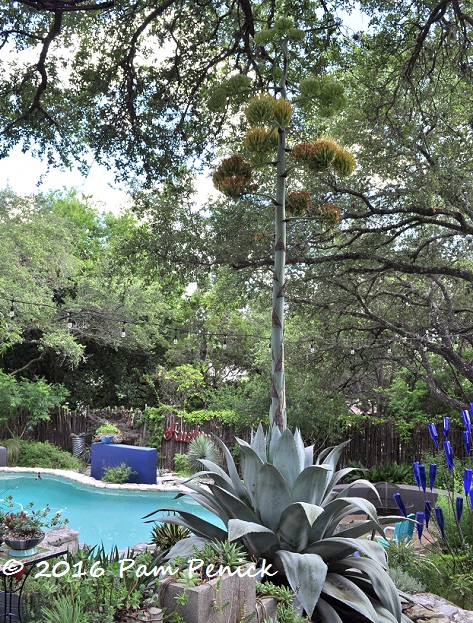
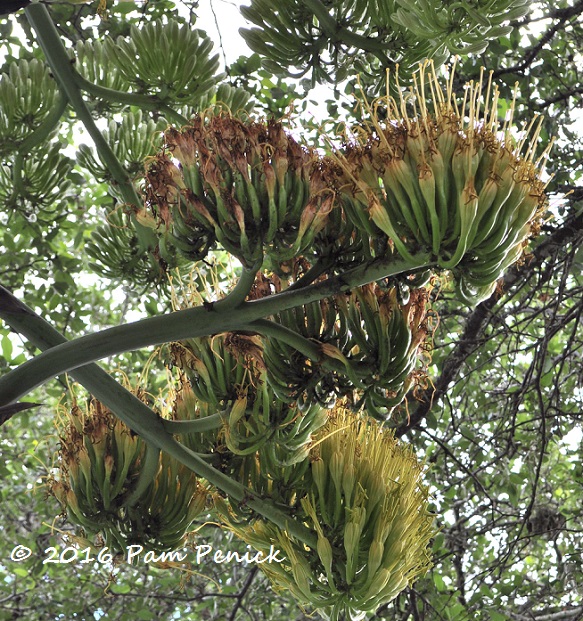
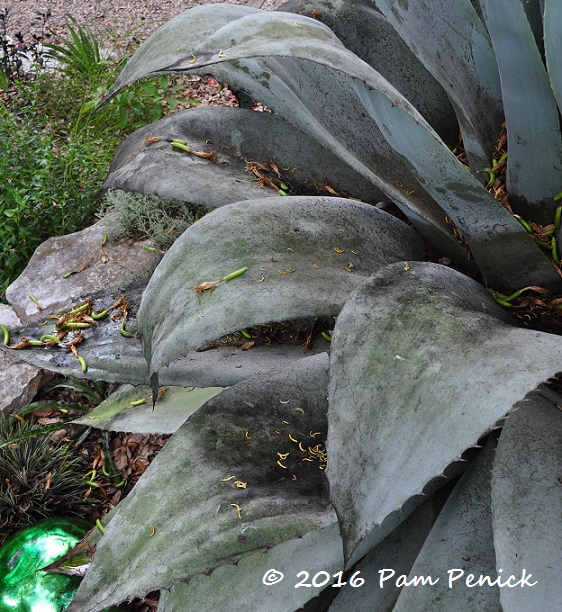
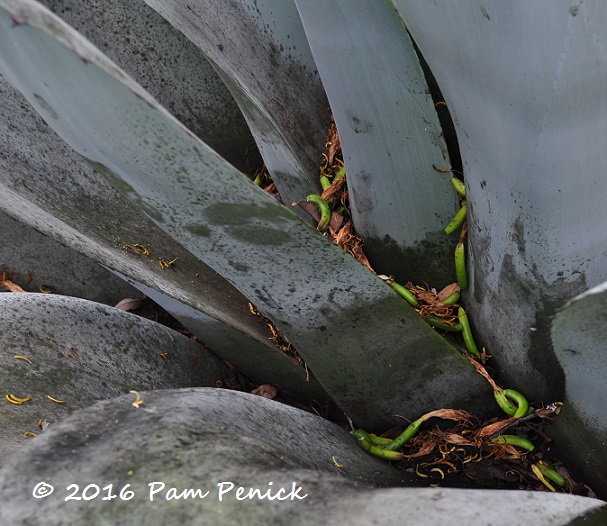
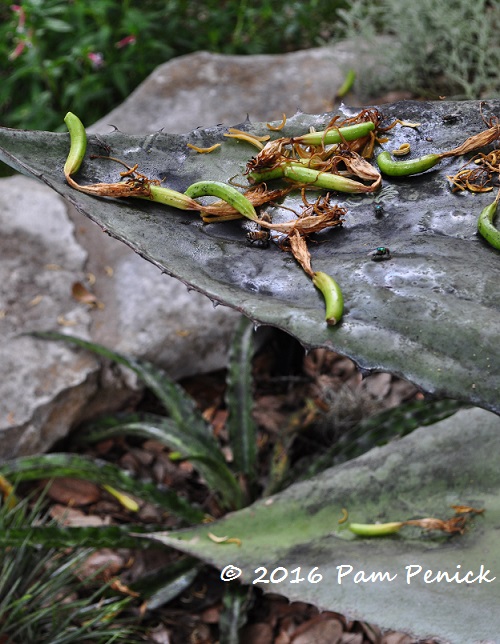
Interesting difference with A. americana with leaves collapsing even before the stalk flowers.
What are your plans for the space?
Moby 2! —Pam
Yay for Moby 2!
Even in death it looks spectacular. Hope you do get some seeds!
We shall see soon. —Pam
It will be a sad day when Moby departs.
What are you going to do with that big hole in your garden? It will be interesting to see.
Another Moby can fill it, Lisa. —Pam
That’s the first time I’ve heard that agave flowers have a rotten-fruit smell but I guess it’s better than the carrion odor of Stapelia, especially given Moby’s size! With all those flowers, I hope you’ll get at least some seeds. I didn’t know it doesn’t produce bulbils either.
This species of agave is pretty stingy with regard to offspring, it seems. —Pam
Pam, that’s an amazing journey. I bet Moby will produce LOTS of great seed and his legacy will live on 🙂
Hoping so, Tamara! —Pam
How on earth will you get it out? Looks like it might require a backhoe.
I think it will require a couple of strong guys with a machete. —Pam
Cheers to a long happy life, Moby…and cheers to Moby II !!!!!!
Condolences to you, Pam 🙁
Moby and I thank you, Heather. sniff. —Pam
The one I saw in bloom at the Huntington developed some hefty bulbils on the bloom spike…be patient, you might get some…or even many more than you want! 🙂
I would love to see that happen. I’ll be on the lookout. —Pam
This has been an education for those of us unlikely to get to watch this process in person.
And for me as well — at least up close. I see agaves blooming all over town, but I’m enjoying the chance to observe the process in my own back yard. —Pam
I just purchased my first Agave ovatifolia ‘Vanzie’ online. Guess we’ll both see how they develop here in the Austin climate.:)
I’m excited to see how it does too, Mike. Since Moby thrived, I have high hopes for ‘Vanzie’. —Pam